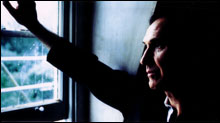 Back when his ’60s contemporaries John Lennon and Pete Townshend were making careers out of revealing their innermost thoughts, Ray Davies moved in a different direction, focusing on the world around him, observing everyday life and the quietly fraught people who live it. After the first few big Kinks singles of the “You Really Got Me” sort, his best songs — “Waterloo Sunset,” “Sunny Afternoon,” “David Watts,” “Dead End Street” — were portraits of human beings lost in the modern world and yearning for connection.
Back when his ’60s contemporaries John Lennon and Pete Townshend were making careers out of revealing their innermost thoughts, Ray Davies moved in a different direction, focusing on the world around him, observing everyday life and the quietly fraught people who live it. After the first few big Kinks singles of the “You Really Got Me” sort, his best songs — “Waterloo Sunset,” “Sunny Afternoon,” “David Watts,” “Dead End Street” — were portraits of human beings lost in the modern world and yearning for connection.
Davies’s once forgotten paean to nostalgia, The Kinks Are the Village Green Preservation Society, has of late grown in stature; it’s been reissued as a three-CD set and is the subject of a book in Continuum’s “33 1/3” series. A commercial failure in 1968, the album is now revered as a lost classic, its distinct Englishness a precursor to the very British pop of the Jam, the Smiths, and XTC as well as the Britpop of Blur and Oasis. Village Green is not only Davies’s most complete work, it’s also the last great Kinks album (even if some Kinks kultists argue for Arthur or Muswell Hillbillies). Unfortunately, the ’70s saw him taking the whole rock-opera shtick too far, and his band became nothing more than a well-oiled arena act. Other than an endless flood of greatest-hits packages and his own 1998 concert souvenir The Storyteller, he hadn’t put out an album of new material since ’93, when the Kinks’ Phobia, an ugly chunk of scrap metal, was released.

What then can one expect from his new Other People’s Lives (V2), his first true solo album? As the title advises, he’s not offering insight into his own travails — there’s no mention in these songs of his near-fatal mugging or his brother Dave’s stroke. Instead, Ray, who is scheduled to play the Orpheum on March 28, stays in his comfort zone — other people’s lives. And he comes through with a collection of observations on growing older, all told with much wit and touches of melancholy.
“Things Are Gonna Change (The Morning After),” the opener, arrives in a clangor of distortion and feedback, and when Davies lays lugubriously into the title line — a hungover drunk’s reform resolution — it’s like hearing from a long-lost friend, the one who used to regale you with eccentric and bittersweet tales. His everyday folks have been seasoned by life, and mostly not for the better. Perhaps the young buck who 30 years ago lived his life so pleasantly “lazin’ on a sunny afternoon” is now the wizened geezer in “After the Fall” who’s a “sinner waiting at the traveler’s rest/seeking refuge from the storm.”
In “Next Door Neighbor,” Davies’s wry eye is trained on desperate housewives (and husbands). Detail has always been his strong suit, whether he’s playing the part of a well-respected man “doing the best things so conservatively” or, on the new album’s acerbic “Stand Up Comic,” a clueless buffoon who doesn’t realize that “Jack the Lad has become Oscar Wilde,” whether he’s “The Tourist” “checking out the slums/With my plastic Visa/Drinking with my chums” or, in “Other People’s Lives,” a cynical tabloid reporter who knows that his readers “follow anything you write/As long as it’s in black and white.”
His world view is summed up in the bleakly optimistic “Over My Head.” “In a world that is full of hatred/And about to descend/I just smile and pretend/I’m a million miles away from it all,” he sings in his sand-and-silk voice. Other People’s Lives offers many such tales of survival, all colorfully told by one of rock and roll’s actual survivors.
Ray Davies | Orpheum Theatre, 1 Hamilton Place, Boston | March 28 | 617.931.2000
___
On the Web:
Ray Davies: //www.raydavies.info/